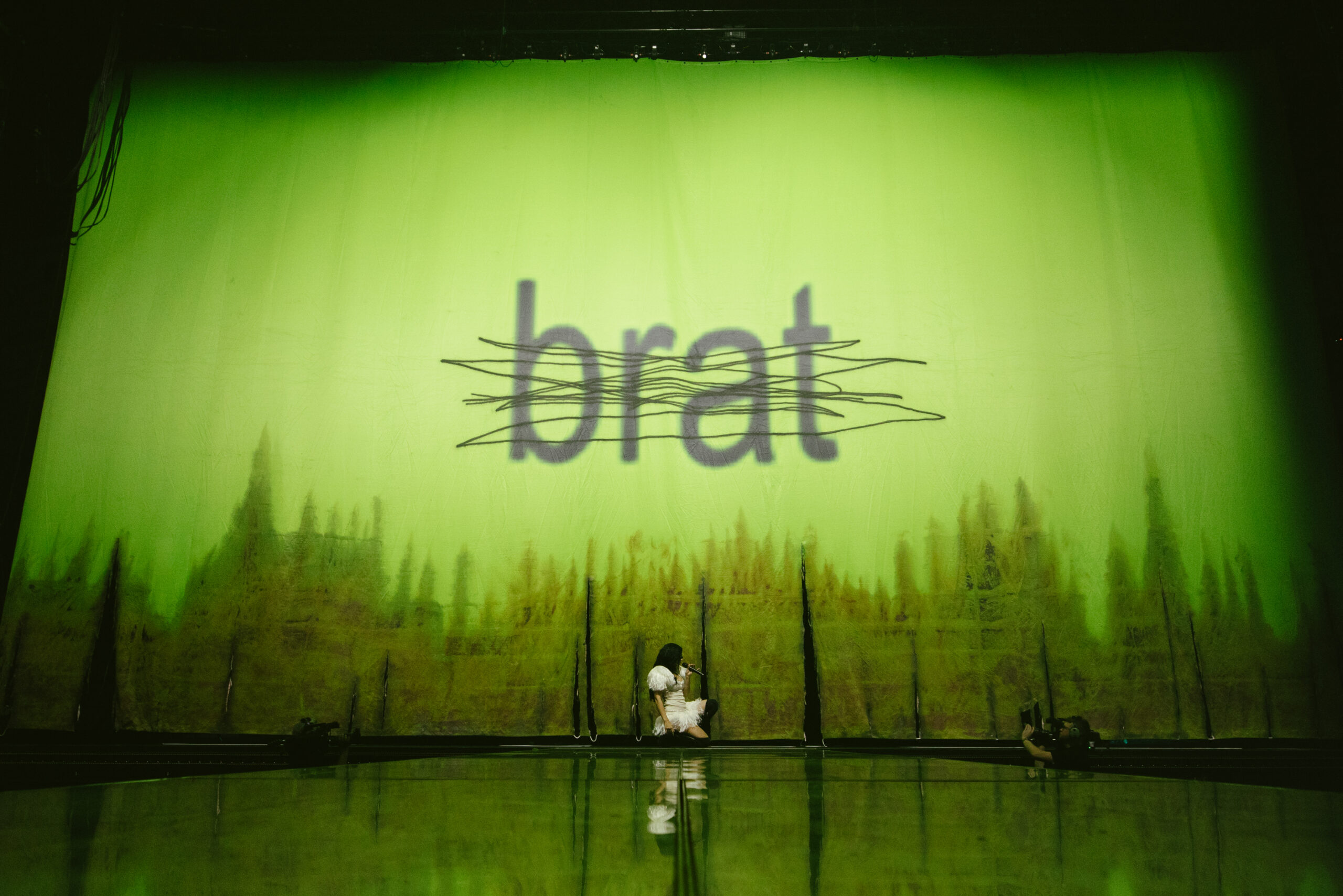
Photos by AJ Anderson, Jonah Elkowitz, Meryl Li, Maren Kranking, Brandi Simpson / North by Northwestern
Part 1 of this series introduced the impact a Republican-controlled government might have on the future of Title IX in college sports. Now, it is time to learn how your vote may influence the employee status of your favorite Northwestern athletes.
Employment status
With the House v. NCAA settlement paving the way for schools to directly pay their athletes, the federal government could decide whether Northwestern’s more than 500 athletes – who generate millions of revenue dollars for the school – are deemed employees and entitled to additional rights.
If Division I athletes receive employee status, they would gain the right to unionize – much like professional football and basketball players in the NFL, NBA and WNBA. As members of a labor union, Northwestern athletes could collectively bargain with the University and NCAA for NIL compensation and employee benefits such as medical care, scheduling flexibility and improved working conditions.
But the NCAA has actively resisted employment efforts, asserting that an amateur business model, under which student-athletes cannot receive direct payment for their athletic performance, is essential to prioritizing education in college sports.
The rulemakers
Over the last five years, the NCAA repeatedly lobbied Congress to pass a bill that prohibits college athletes from becoming employees and grants the organization greater regulatory power over athlete compensation.
Legislators have introduced over 10 bills and held dozens of hearings about athlete compensation, but, so far, the NCAA’s federal lobbying campaign has only pushed one bill through to the markup stage: the Protecting Student Athletes’ Economic Freedom Act. First introduced by Rep. Bob Good (R-Va.), the act would classify college athletes as amateurs, meaning they are unpaid players. In June, the House Committee on Education and the Workforce sent the bill to the full House of Representatives after a 23-16 vote along strict party lines, with Republicans in support and Democrats against.
Generally, Democrats have emphasized the rights of athletes to monetize their personal brands and receive employee protections, according to Julie Sommer, the executive director of Drake Group, an organization that helps Congress uphold academic integrity in intercollegiate athletics. Meanwhile, Republicans have tried to preserve amateurism in college sports and give antitrust protection to the NCAA.
Under a unified government, Republicans could finally pass legislation that answers the NCAA’s lobbying cries. Republicans will take control of the Senate Commerce Committee, which has jurisdiction over athlete compensation issues, and likely promote Sen. Ted Cruz (R-Texas) to Commerce Chair. Cruz, who has publicly pledged to make college sports reform “a very, very high priority,” will have the power as chairman to set the committee’s agenda, convene hearings, shape legislation and bring bills to a markup.
Cruz has said that if federal law forces schools to treat student athletes as employees, schools may make drastic cuts to athletic programs to meet payroll obligations. Moreover, athletic scholarships and benefits may become subject to taxes and other financial complications. Using these arguments, the Republican senator has pledged to back legislation that is NCAA-friendly.
Still, after the election, neither party won enough Congressional seats to pass legislation along party lines only. Even if an NCAA-related bill leaves the Senate Commerce Committee, it would likely need bipartisan support to meet the 60-vote Senate threshold and advance to the House of Representatives.
The referees
In the meantime, there are other routes outside of Congress for athletes to become employees. A familiar option is through the National Labor Relations Board (NLRB), an independent federal agency that safeguards employees’ rights to unionize.
In 2014, Northwestern scholarship football players petitioned the NLRB to rule that athletes who receive grant-in-aid scholarships at private colleges and universities are employees and entitled to a union election. In response, the NLRB “assumed, without [officially] deciding,” that the football players were indeed employees of Northwestern under the National Labor Relations Act (NLRA). But to the players’ dismay, the board granted the university a review and ultimately concluded that “asserting jurisdiction in this case would not serve to promote stability in labor relations.”
While the Northwestern football players were unsuccessful in their first and only bid to form a labor union, they paved the way for the NLRB to assert its jurisdiction in future cases involving scholarship athletes.
Since then, the NLRB has pursued multiple cases that address unfair labor practices in college sports. In March 2024, the NLRB granted men’s basketball players the right to unionize at Dartmouth College, a Division I school. The team later voted to become a union, but the school refused to collectively bargain and filed an appeal to contest the board’s earlier decision. The NLRB has yet to accept or reject this appeal.
Northwestern athletes looking to unionize may face a similar fate to those at Dartmouth. Even if players vote to form a union and the NLRB approves, the University may refuse to bargain. Northwestern can then expect challenges in the federal appeals court and potentially the Supreme Court.
Unlike before, the current NLRB is open to the idea that Northwestern athletes are employees. In fact, Sitting General Counsel Jennifer Abruzzo issued a memorandum in 2021 stating the “football players at issue in Northwestern University … are employees under the [NLRA].” Should future investigations and litigation arise under the Act, Abruzzo says she “will be taking that [same] legal position.”
But under a new president, the NLRB may take a different stance. All five members of the NLRB are presidential appointees with 5-year term limits, all set to expire before the next presidential election. Starting in 2025, Trump will be able to appoint one new member to the national board per year with Senate confirmation. He also has constitutional authority to remove the NLRB general counsel at any time.
In his first presidential term, Trump appointed people with anti-union track records to leadership positions at the NLRB. Under his administration, the agency worked to limit overtime protections as well as the use of “Scabby,” the inflatable rat used by unions during strikes.
If the Senate approves Trump’s future nominations, the current NLRB board – which includes three Joe Biden appointees, one Trump appointee and one vacancy – could flip from majority-Democrat to majority-Republican by 2026. The political makeup of the NLRB could affect the outcome of current and future labor union cases, including those that may involve Northwestern.
Leading up to the 2024 presidential election, Americans were less likely to say the Republican Party best serves the interests of union members (27%) than to say the Democratic Party does (67%), according to a Gallup Poll in August.
Trump has already tapped people to fill leadership positions who question the NLRB’s power and structure. The president-elect announced Elon Musk will help lead the new “Department of Government Efficiency,” an outside advisory group Trump says will “drive large scale structural reform” within the government.
Musk is the majority owner of SpaceX, just one of the many companies that have filed lawsuits challenging the NLRB’s adjudication procedures as unconstitutional. Though SpaceX’s lawsuit has been stayed pending appeal at the federal level, similar lawsuits have temporarily blocked the NLRB from further pursuing certain unfair labor cases.
Both internal and external changes to the NLRB could have profound consequences for employees who rely on the board to protect them against illegal labor practices – and college athletes have high stakes in the matter.
Thumbnail photo by AJ Anderson, Jonah Elkowitz, Meryl Li, Maren Kranking, Brandi Simpson / North by Northwestern



